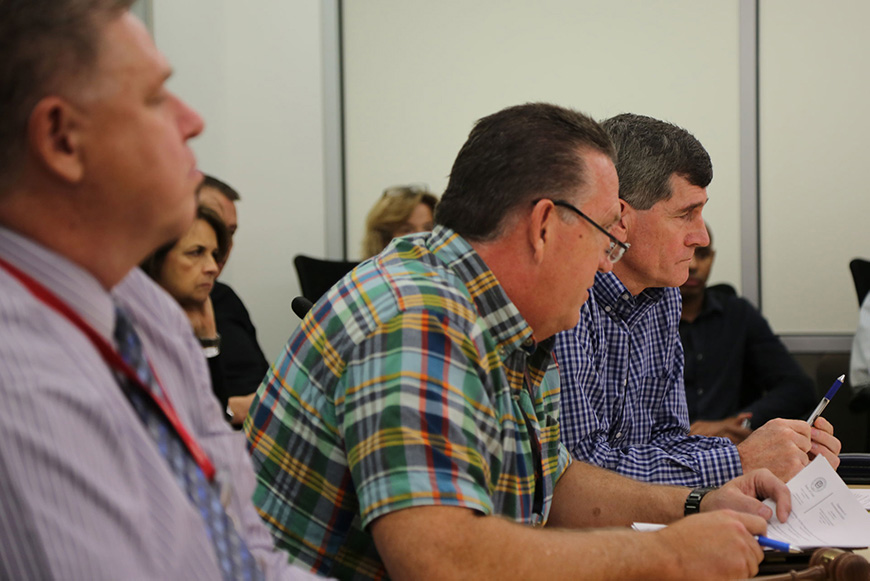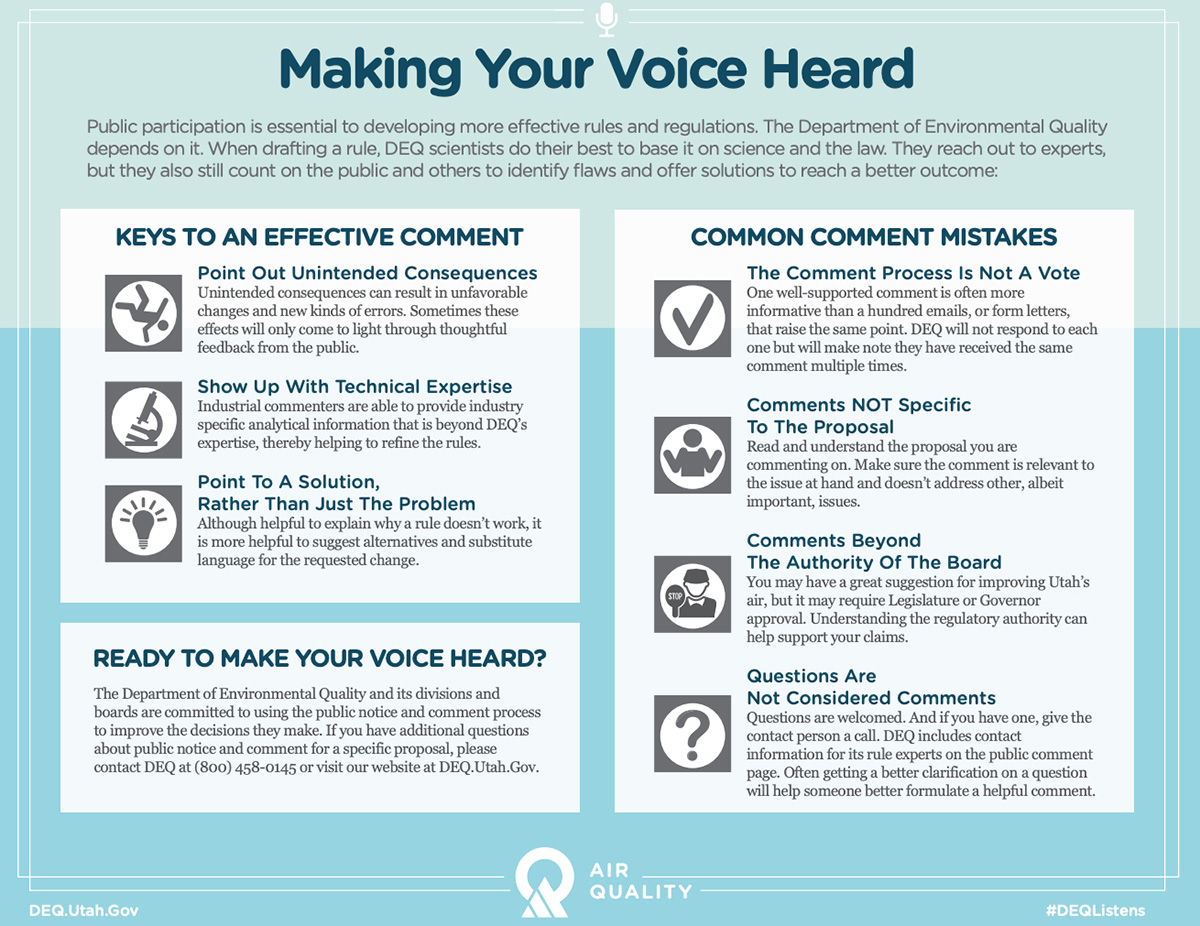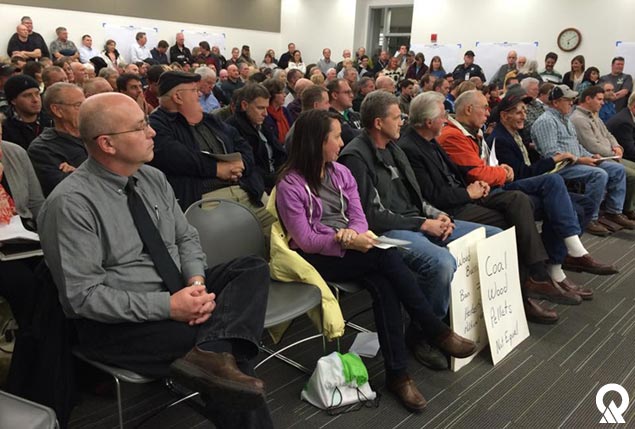By DEQ Communications Office
We understand people’s frustration when they take the time to submit a written or verbal public comment on a regulatory proposal and at the end of the process, the final rule or regulation doesn’t seem to reflect their comment. They walk away with a feeling their comment doesn’t really matter.

That’s not entirely true. Public participation is essential to developing more effective rules and regulations. The Utah Department of Environmental Quality (DEQ) depends on it. When drafting a rule or permit, DEQ scientists do their best to base it on science and the law. They reach out to experts, but they also count on the public and others to identify information gaps and offer solutions to reach a better outcome: protective, reasonable regulations and permits without unintended consequences.
DEQ’s five divisions rely on their governing boards to enact rules and regulations based on staff recommendations. They also solicit input on plans and permits to ensure they are protective of Utah’s air, land, and water. Below is a sampling of some of the permits, plans, and requests currently out for public comment:
- Draft Fee Schedule for the Department of Environmental Quality
Proposed DEQ fee schedule for Fiscal Year 2020 - EnergySolutions Request for Exemption from a Performance Assessment for Disposal of Depleted Uranium Munitions
Request by EnergySolutions for exemption from state rules requiring a performance assessment for the receipt and disposal of depleted uranium in excess of one metric ton total accumulation - US Magnesium Groundwater Discharge Permit
Permit imposing conditions on US Magnesium to ensure that existing facilities minimize the discharge of wastewater to groundwater - Western Zirconium Groundwater Discharge Permit
New monitoring parameters to better reflect wastewater constituents to ensure wastewater containment structures minimize subsurface flow and the flow of contaminants to surface water.
Keys to Effective Public Comments

Good comments provide new information the agency hasn’t considered or offer possible solutions to the problem. Comments that offer opinions or raise questions unrelated to the proposed rule or permit aren’t very helpful.
Point out unintended consequences
Public comments have proven to make a difference during rulemaking. For example, Division of Air Quality (DAQ) staff recommended exemptions to a proposed solvent rule based on public comments that pointed out how lowering the Volatile Organic Compounds (VOC) content requirements in solvents without including exclusions for high vapor-pressure solvents would be counter to the proposed rule’s purpose of using environmentally friendly solvents.
Show up with technical expertise
Commenters are able often able to provide expert information that helps the agency refine rules.
Point to a solution, rather than just the problem
While it’s helpful to explain why a rule or permit doesn’t work, it’s even better to suggest alternatives and substitute language for the requested change.
Common Comment Mistakes
Use comments as votes
The public comment process is not a vote – one well-supported comment is often more informative than a hundred emails or form letters that raise the same point. DEQ doesn’t respond to these formulaic comments but will note it received the same comment multiple times.
Make comments that are NOT specific to the rulemaking proposal
Read and understand the proposal you are commenting on. For example, if the proposed regulation regards reductions of VOCs in wood furniture coatings, but the comment is about banning wood smoke, that comment isn’t relevant to the issue at hand and staff won’t respond to it.

Provide comments beyond the authority of the agency
You may have a great suggestion for improving Utah’s air or water, but it may require Legislative or Governor approval. Understanding the extent and limits of DEQ’s regulatory authority can ensure your comments are given due consideration.
Ask questions on a proposed rule rather than offering comments
Questions are welcomed, but they aren’t considered comments. If you have a question, give the contact person a call. DEQ includes contact information for the staff scientist overseeing the rule, permit, and public comment in its public notices. Often getting clarification on a question will help you formulate a better comment.
